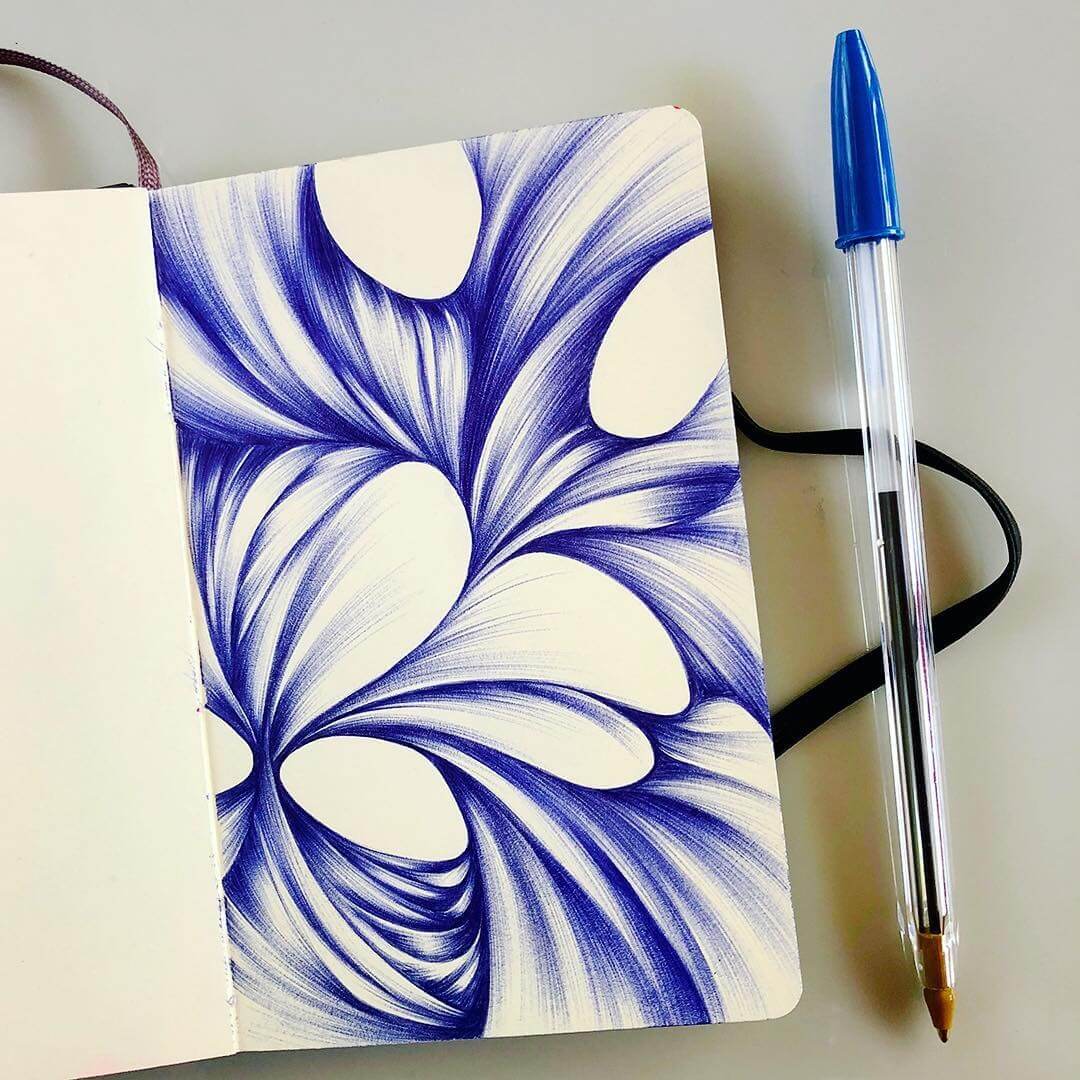The Unexpected Majesty of Ballpoint Pen Art
In the realm of artistic expression, where canvases stretch and brushes dance, an often-overlooked medium quietly asserts its power: the humble ballpoint pen. Beyond its utilitarian purpose, this everyday object transforms into a tool capable of producing intricate and breathtaking artwork, pushing the boundaries of creativity.
Consider the sheer ubiquity of the ballpoint pen. It resides in pockets, purses, and desk drawers worldwide, a silent witness to countless thoughts and scribbles. Yet, in the hands of a skilled artist, this simple instrument becomes a conduit for expressing complex emotions, capturing fleeting moments, and rendering breathtaking detail.
Ballpoint pen art, often referred to as "biro art," is the creation of artwork using ballpoint pens as the primary medium. It requires patience, precision, and a deep understanding of the pen's limitations and possibilities. This unique art form challenges the notion of what constitutes "fine art," elevating the ordinary to the extraordinary.
The history of ballpoint pen art is intertwined with the development of the pen itself. While László Bíró is often credited with its invention in the 1930s, the concept of a rolling-ball pen dates back even further. As the ballpoint pen became increasingly accessible, artists began to experiment with its artistic potential, recognizing its capacity for creating rich textures and intricate linework.
The accessibility of ballpoint pens is a significant factor in the art form's appeal. Unlike traditional art supplies, which can be expensive and require specialized knowledge, ballpoint pens are readily available and affordable, democratizing the process of artistic creation. This allows artists from diverse backgrounds to explore their creative potential without significant financial barriers.
The challenges of working with ballpoint pens contribute to the unique aesthetic of the art form. The ink's permanence means that mistakes are difficult to erase, demanding careful planning and execution. This characteristic also fosters a sense of immediacy and spontaneity, encouraging artists to embrace the unexpected and work intuitively.
One of the notable benefits of using ballpoint pens is the ability to create intricate details and subtle shading through cross-hatching, stippling, and varying pen pressure. This allows artists to achieve a remarkable range of tonal values and textures, often mimicking the effects of other mediums like pencil or charcoal.
Another advantage lies in the portability of ballpoint pens. Artists can easily carry their tools with them, capturing inspiration wherever it strikes. This makes ballpoint pen art a perfect medium for sketching, journaling, and creating artwork on the go.
A third benefit is the durability of ballpoint pen ink. Unlike other inks that can fade over time, ballpoint pen ink is relatively lightfast and resistant to smudging, ensuring the longevity of the artwork.
Advantages and Disadvantages of Ballpoint Pen Art
| Advantages | Disadvantages |
|---|---|
| Accessibility and affordability | Difficulty in erasing mistakes |
| Portability and convenience | Ink can sometimes bleed or smudge on certain papers |
| Durability and lightfastness of ink | Limited color options with standard ballpoint pens |
Five best practices for ballpoint pen art include: experimenting with different pen pressures to achieve varying line weights, using cross-hatching and stippling to create shading and texture, practicing on different paper types to understand ink behavior, exploring different color combinations, and studying the work of other ballpoint pen artists for inspiration.
Examples of prominent ballpoint pen artists include Lennie Mace, whose intricate cityscapes capture the energy of urban environments; Juan Francisco Casas, known for his large-scale portraits; and Il Lee, who explores the expressive potential of abstract ballpoint pen drawings. These artists demonstrate the versatility and power of the medium.
Challenges in ballpoint pen art often revolve around controlling ink flow and avoiding smudging. Solutions include using smooth, high-quality paper and practicing techniques to minimize smudging. Another challenge is achieving smooth gradients. Solutions involve using techniques like stippling and cross-hatching.
Frequently asked questions include: What type of paper is best for ballpoint pen drawings? Smooth, thick paper is generally preferred. Can you erase ballpoint pen ink? While not easily erased, some techniques and erasers can lighten the ink. What are some good ballpoint pen brands for art? Many brands offer artist-quality ballpoint pens. What are some tips for beginners? Start with simple drawings and gradually increase complexity. How do you create shading with a ballpoint pen? Cross-hatching and stippling are effective shading techniques. What is the difference between cross-hatching and stippling? Cross-hatching involves overlapping lines, while stippling uses dots to create tone. How do you avoid smudging? Let the ink dry completely and use a fixative spray.
Tips and tricks for ballpoint pen art include layering colors to create depth, using a blending stump to soften lines, and experimenting with different pen types, such as gel pens or rollerball pens, to achieve unique effects. Observing everyday objects and practicing drawing from life can also significantly improve skills.
In conclusion, ballpoint pen drawings art is a captivating and accessible art form that empowers artists to transform the ordinary into the extraordinary. Its unique challenges and advantages contribute to its distinct aesthetic, allowing for intricate detail, rich textures, and expressive linework. From its humble beginnings as a writing tool, the ballpoint pen has emerged as a powerful medium for artistic expression, inviting artists of all levels to explore its creative potential. Pick up a pen, embrace the unexpected, and discover the hidden magic within this everyday object. The journey of artistic discovery awaits, one stroke at a time. The potential for creative exploration is vast, and the only limit is your imagination. So, take a pen, a piece of paper, and begin your own exploration of this captivating art form. The world of ballpoint pen art awaits you.
Refreshing your home with clary sage sw 6178 exterior paint
Finding solace exploring words that rhyme with peace in portuguese
Dumbledores army marches on the enduring power of harry potter and the order of the phoenix fanfiction














